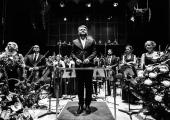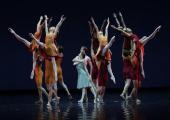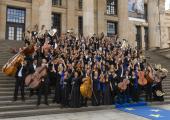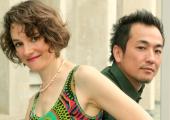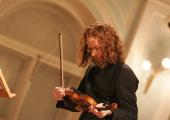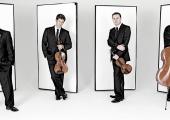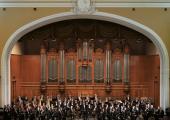Bavouzet, LPO, Jurowski, Royal Festival Hall

Shostakovich's greatest war requiem, a modern masterwork and scintillating Prokofiev
Comparisons, even on paper, between two season openers from London orchestras could hardly have been more instructive. I didn’t attend Valery Gergiev’s London Symphony Orchestra concert last week, for reasons several times outlined on theartsdesk. But quite apart from the fact that Gergiev and his court pianist Denis Matsuev are active supporters of Putin's “Might is Right” campaign in the Ukraine – a situation which tens of thousands of Muscovites are beginning to challenge – Matsuev is also the worst of barnstormers.

